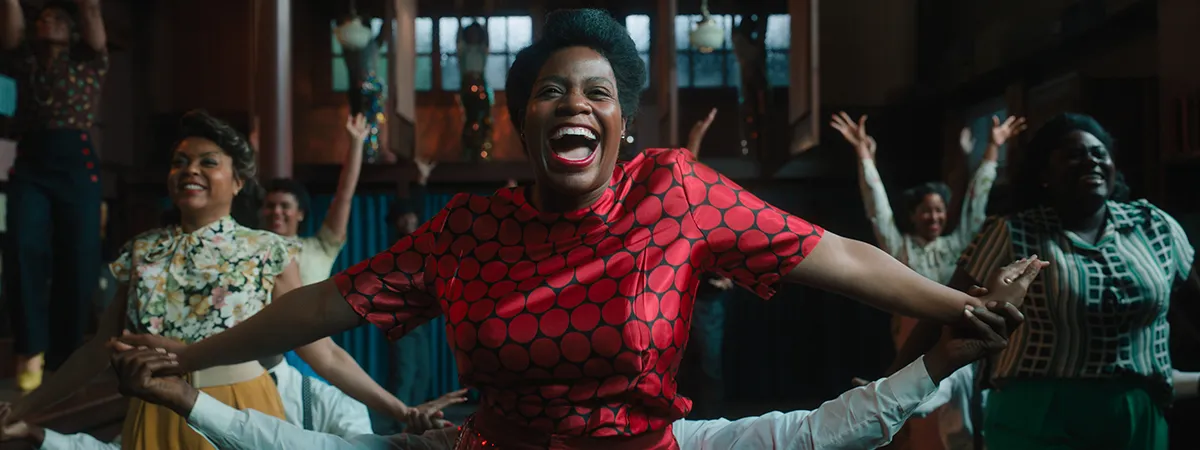Film Review: The Color Purple
Film
The Color Purple
Director: Blitz Bazawule
Harpo Films and Amblin Entertainment
In Theaters: 12.25
There was room for a fresh, new cinematic take on Alice Walker’s The Color Purple, even though Steven Spielberg’s 1985 film was a defining personal experience for some of us. I was hopeful for an inspired and authentic creative vision with the new musical version, something that stayed true to the emotional depth and weight of the material but brought a fresh new interpretation that didn’t just feel like a remake.
In a story spanning four decades, we first meet Celie (Phylicia Pearl Mpasi, Grease: Rise of the Pink Ladies) and Nettie (Halle Bailey, The Little Mermaid) as teen girls in Georgia who are living through rough times but sticking close together. Nettie is vivacious and educated while Celie is shy and belittled by all, especially their abusive father, Alfonso Harris (Deon Cole, Average Joe). When Alfonso grows bored of Celie—having given away the two children she gave birth to by him—he sells her into marriage with the cruel Mister (Colman Domingo, Rustin). If things weren’t bad enough already, Nettie rejects Mister’s advances, and he angrily drives her from his property, separating the sisters. Years pass, and Celie (now played by renowned singer Fantasia Barino) is a grown woman just trying to survive. Everything changes, however, when a woman from Mister’s past, the sultry and confident jazz singer Shug Avery (Taraji P. Henson, Hidden Figures), enters Celie’s life and teaches her to find hope and recognize her own inner beauty and strength.
Despite all of the talk of a bold, new vision, this glitzy, glossy and glamorous take on The Color Purple is a lot like watching the weakest of Disney’s live-action remakes of animated classics. All of the story beats are there, yet the artistry, inspiration and passion are nowhere to be found. Where the original film offered powerful performances that spoke volumes through the nuances of facial expression, body language and richly-drawn characters, here, every single emotion and thought is spelled out explicitly through song which dumbs the story down to an embarrassing degree. Director Blitz Bazawule (Black is King) is far more interested in flashy set pieces and energetic dance numbers than in characters, and the sequence where Celie imagines herself walking around a giant, spinning vinyl record as Shug takes a bath in the center of it left me struggling to decide whether to laugh out loud or cry at such amazing source material being reduced to razzle-dazzle spectacle.
Celie is one of the greatest characters in the history of fiction, and it requires a powerhouse dramatic performance. Barino has the pipes to belt out her songs with gusto, but to put it bluntly, she simply cannot act. In a film that overplays nearly everything, the indomitable spirit of Celie is reduced to listless line readings punctuated by occasional soap opera emoting, and the characterization is nonexistent. Clashing sharply with Barino’s dull nothingness, Domingo milks every second of screentime with outrageous posturing and histrionics that desperately need a director with enough experience to say “pull it back a bit.” Corey Hawkins (In The Heights) is a highlight of the film as Harpo, Mister’s son, because he’s actually acting in a movie where most of the cast is merely performing. Henson brings star quality and sass to the role of Shug, though this isn’t entirely a good thing, as the character is given too much screen time, and she becomes the center of attention to a problematic extent. There’s a misguided attempt to play this as a true ensemble piece, and the result is a lack of focus or any true emotional center. Perhaps most frustratingly, this version of the film has nearly every character learning from their mistakes and being unequivocally redeemed (with Mister doing a 180 from nasty cartoon villain to clownish comic relief in the last 15 minutes) so that it all can all end in a big, happy, cookie-cutter song about togetherness.
On stage—and with the right Celie and a seasoned director—I’m sure this vision would work well enough to be solid entertainment, but it should have stayed right there on the stage. While this cheesy and saccharine version of The Color Purple may be a satisfying experience for the most hardcore and indiscriminate musical melodrama fans, it’s at best a mere footnote to the legacy of a great work of art. –Patrick Gibbs
Read more reviews of musical films:
Film Review: In the Heights
Film Review: Wonka
